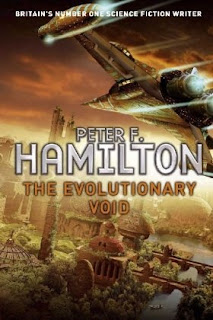 Book: A Clash of Kings (George R.R. Martin, 1998)
Book: A Clash of Kings (George R.R. Martin, 1998)
I would be lying if I said Part 2 of A Song of Ice and Fire wasn't something of a slog. Like many fantasy novels before it, there are moments and characters that reduce the story to a crawl and at about 900 pages in length, there's a lot to wade through at times. Whilst Martin paints this book with a larger canvass than A Game of Thrones, you can't help but feel a tighter edit should have been in order. Jon Snow's journey beyond the wall stands out the most, as much of his narrative is spent walking and camping, walking and camping.
Thank goodness then for the cast of characters who are never less than fascinating. The Lannisters still remain evil to the core whilst the Stark household, scattered after the coup in the previous book, try to claw back what is left of their dynasty. It is this politics between the rival houses that makes this series so great and whilst there are now dragons and talk of magic, it's the bitter infighting that delivers that gravitas that makes the book work. It never sacrifices its integrity either and never feels the need to take the safe route. Power in the Song of Ice and Fire world must be maintained by force, resulting in the evil triumphing over the good. As such, the end result is extremely downbeat, more so than the first book.
This is still quite early in the series though so I'm hoping some plot threads will be ended in a satisfactory fashion. At the moment though, a Clash of Kings doesn't fail in making me want to read the next entry, a Storm of Swords.
4/5
 Book: Cabal (Clive Barker, 1988)
Book: Cabal (Clive Barker, 1988)
My favourite Clive Barker works are his books of the Art: The Great and Secret Show & Everville. Both deal with relative outsiders coming to terms with a world or a power that can be found just outside the hinges of our recognised reality. It's this focus on the uncanny that made Barker's name, with other novels such as The Damnation Game and The Hellbound Heart also being great demonstrations of this craft, culminating in his epic vision in the yet unfinished trilogy of The Art (NOTE: Imajica is widely considered to be his magnum opus but I have yet to read it).
Cabal, one of his short early efforts, reads like a condensed version of The Art saga, again focussing on the local misfit who finds solitude amongst a band of other misfit monsters (The Nightbreed) rather than those that care about him in the real world. All the usual Barker tropes are present: a detailed fascination with the macabre, graphic sex and violence, an obvious love for the outsider/underdog. The only thing missing is a focus on The Nightbreed itself. At a brief 250 pages, many of the ideas Barker touches upon are rarely fleshed out, and whilst this results in a near pitch perfect pace, you can't help but want to indulge further in his demented vision. It also isn't helped by an open ended climax which, much like The Great and secret Show, instigates that there are further adventures to come which have not yet materialised.
Had this been longer, I would have classed t as one of my favourite Barker novels. As it stands, Cabal is excellent but all too brief.
4/5
 Book: The Evolutionary Void (Peter F. Hamilton, 2010)
Book: The Evolutionary Void (Peter F. Hamilton, 2010)
Taking in the Void trilogy as a whole, I can say that it lacks the punch that made The Commonwealth Saga (TCS) such a blast. TCS featured conspiracy, politics and war on a scale that I had never read before. Whilst the conspiracy element is very much present in the Void trilogy, the epic scale of TCS is dialled down substantially to make way for quasi-religious mumbo-jumbo, unsurprising considering the main plot threads revolve around the Living Dream religious movement. Yet in doing this, Hamilton unfortunately spends much of the narrative raising questions on the nature of religion and how there are those that will use it for their own personal gain above all else. Some of this is intermittently interesting, however it mostly slackens the pace resulting in an entertaining yet muddled saga.
As a book unto itself, The Evolutionary Void is perfectly fine and rounds up the various plot threads in a mostly satisfactory fashion. Why then do I choose a lesser score than the previous two books? The Dreaming and Temporal Voids built up a level of momentum that would be near impossible to live up to and, unfortunately, the Evolutionary Void falls a little flat. Definitely a case of the build up being better than the pay off.
Still, it's a decent effort. It just aint as good as The Commonwealth Saga.
3/5
No comments:
Post a Comment